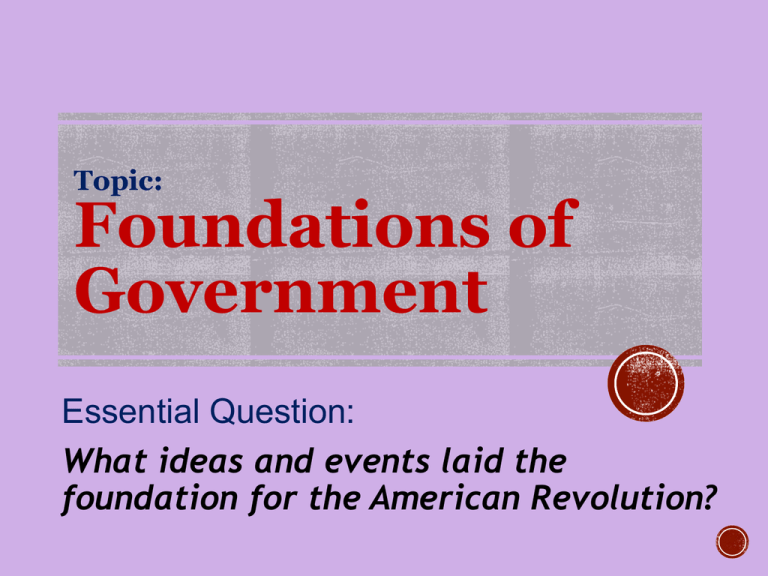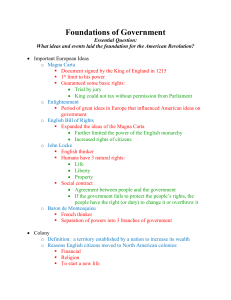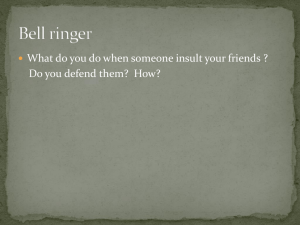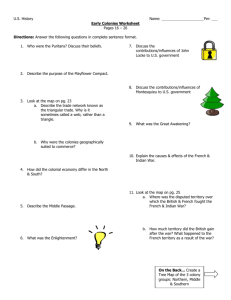Foundations of Government Essential Question: What ideas and events laid the
advertisement

Topic: Foundations of Government Essential Question: What ideas and events laid the foundation for the American Revolution? Important European Ideas Magna Carta Document signed by the King of England in 1215 1st limit to his power Document signed by the King of England in 1215 1st limit to his power Guaranteed some basic rights: Trial by jury King could not tax without permission from Parliament Trial by jury King could not tax without permission from Parliament Enlightenment Period of great ideas in Europe that influenced American ideas on government Francis Bacon Enlightenment Period of great ideas in Europe that influenced American ideas on government English Bill of Rights Expanded the ideas of the Magna Carta Further limited the power of the English monarchy Increased rights of citizens Further limited the power of the English monarchy Increased rights of citizens Further limited the power of the English monarchy Increased rights of citizens John Locke English thinker Humans have 3 natural rights: Life Liberty Property Life Liberty Property Social contract Agreement between people and the government If the government fails to protect the people’s rights, the people have the right (or duty) to change it or overthrow it Agreement between people and the government If the government fails to protect the people’s rights, the people have the right (or duty) to change it or overthrow it Baron de Montesquieu French thinker Charles-Louis de Secondat, Baron de la Brede et de Montesquieu Baron de Montesquieu French thinker Separation of powers into 3 branches of government French thinker Separation of powers into 3 branches of government Colony Definition: a territory established by a nation to increase its wealth Colony Definition: a territory established by a nation to increase its wealth Reasons English citizens moved to North American colonies: Financial Religion Financial Religion To start a new life Religion To start a new life Pilgrims Sailed to America on the Mayflower in 1620 Pilgrims Sailed to America on the Mayflower in 1620 Signed the Mayflower Compact Agreed to majority rule Helped establish the idea of self-government in the colonies Agreed to majority rule Helped establish the idea of self-government in the colonies French and Indian War (1754-1763) Britain v. France Each side had Native American allies Joseph Brant (Thayendanegea), Mohawk leader— ally to the British French negotiating with Huron allies Britain v. France Each side had Native American allies Fighting for control of North America Each side had Native American allies Fighting for control of North America Each side had Native American allies Fighting for control of North America Tanacharison, the “Half King” Battle of Jumonville Glen Each side had Native American allies Fighting for control of North America Fort Necessity Surrendered to the French: July 4, 1754 Gen. Edward Braddock Battle of the Monongahela Braddock’s death Each side had Native American allies Fighting for control of North America Part of a worldwide war between European nations called the Seven Years’ War Fighting for control of North America Part of a worldwide war between European nations called the Seven Years’ War British victory Gained control over all territory east of the Mississippi River British victory Gained control over all territory east of the Mississippi River Very expensive war Leads to the American Revolution


